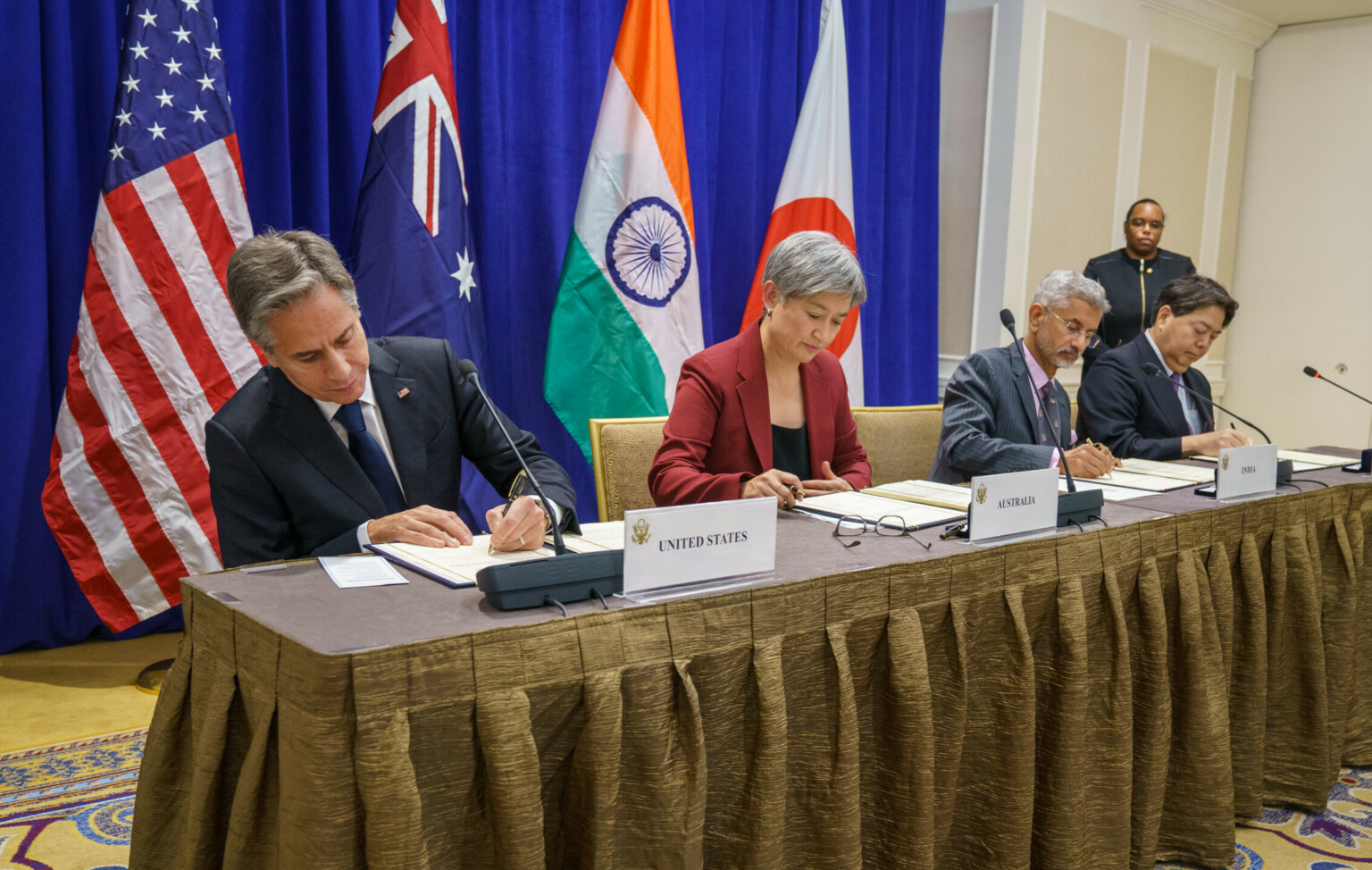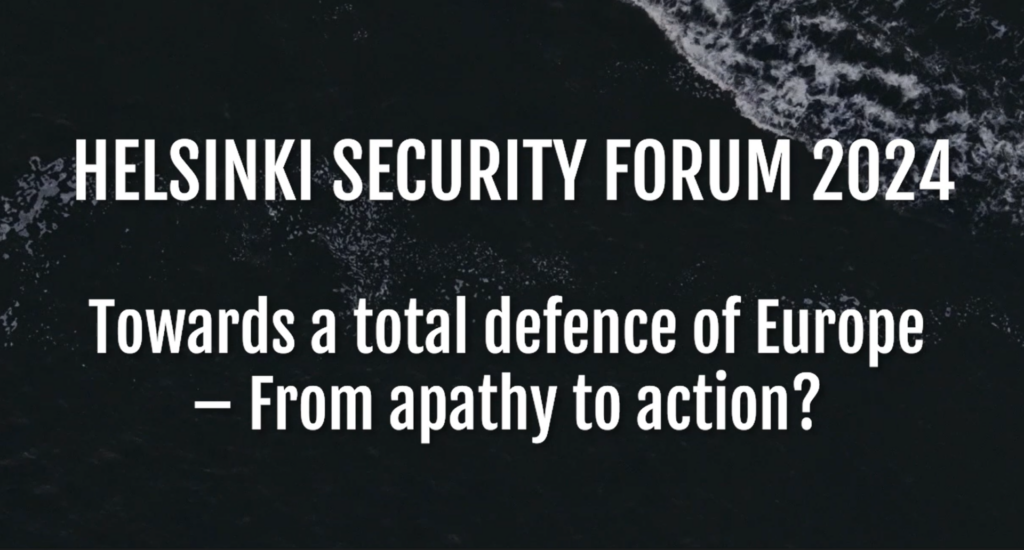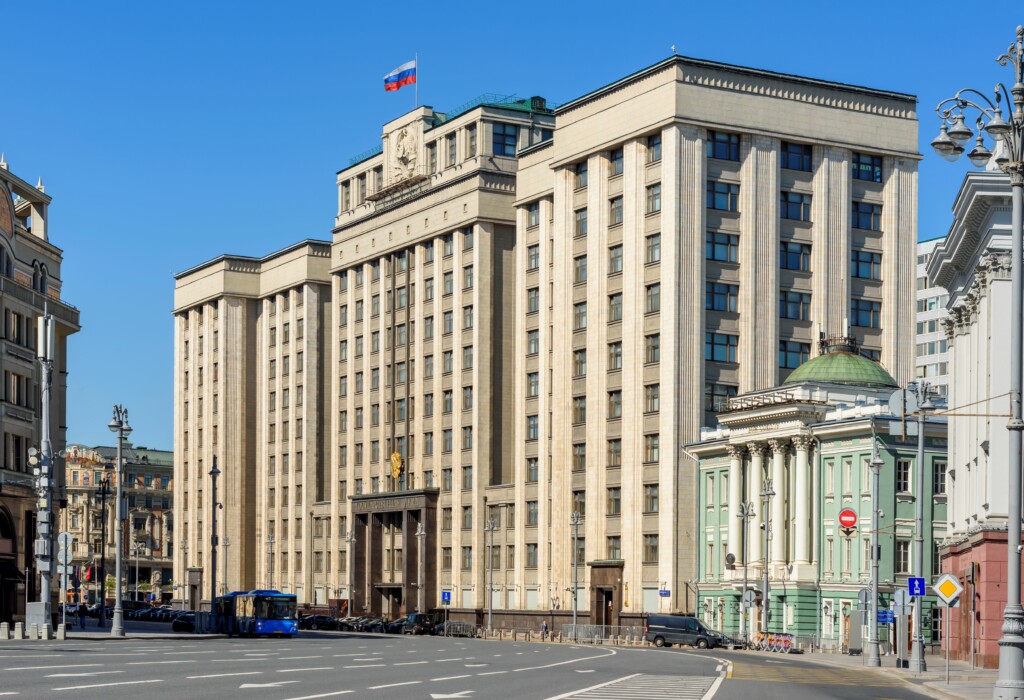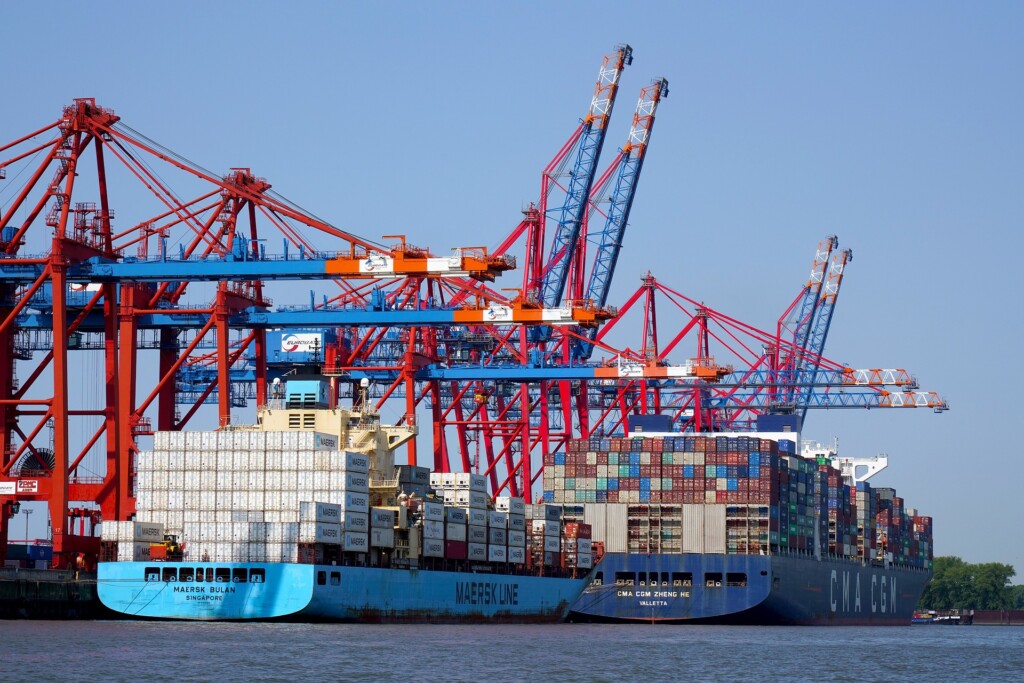Publications

Reverberations in the Indo-Pacific of the War in Ukraine
Russia’s war of aggression against Ukraine has had significant ripple effects in Indo-Pacific security dynamics and ongoing great-power competition. It has brought to the fore fears over a Taiwan contingency and has led to a closer entwinement of European and Indo-Pacific security.
The war has profoundly impacted power dynamics in the Indo-Pacific and perceptions of the global order as well as of China. In recent years, the global visions of China and Russia have aligned. Although their interests have often differed in practice, they have aimed to challenge the post-Second world war liberal international order and diminish US influence and hegemony. The war in Ukraine has also emboldened North Korea to bolster “strategic cooperation” with Russia and China, and to reap economic, political, and military benefits.
Many in the so-called Global South reject the predominantly American logic of dividing the world into “democracies versus autocracies”.
Since the start of the war in Ukraine, one important realisation has been that the Western-created rules-based order is not shared by all. Numerous countries have refused to follow Western sanctions against Russia or even condemn its invasion of Ukraine. Instead, many in the so-called Global South reject the predominantly American logic of dividing the world into “democracies versus autocracies”. Instead, many countries have conducted a hedging strategy. One emerging power and aspiring voice of the Global South has been India. Since the start of the Ukraine war, New Delhi has boosted trade ties with Russia and retained close links as for arms supplies.
At the same time, India has been aligning itself more with Western countries. It has cooperated with the US, for example through the Quad. At present India remains multi-aligned, implementing issue-based cooperation rooted in national self-interest and pragmatism. Reciprocally, reinforcing cooperation with countries from the Global South, not least India, will remain key for the West in preserving the rules-based order.
A second ramification of the war in terms of Indo-Pacific security dynamics is heightened tensions surrounding the Taiwan question, with important consequences for policymakers in the region. The US remains formally committed to a One China policy, i.e., recognising the People’s Republic of China as the legal government of China, but not recognising the PRC’s claim to sovereignty over Taiwan. The US has also retained a degree of “strategic ambiguity” regarding the possibility of military intervention in case of a conflict. However, Washington has recently de facto strengthened and upgraded its ties with Taiwan economically, politically, and militarily. President Joe Biden has also signalled readiness to defend Taiwan in the event of a Chinese invasion.
In Japan, the US’s closest ally in the region, the possibility of a Ukraine scenario playing out over Taiwan has gained more traction and fears have strengthened that Japan could become embroiled in a potential future conflict. In addition to concerns over China emulating Russia’s behaviour, Japan has become increasingly uneasy about China’s expanded military presence close to its territorial waters, surrounding the Senkaku islands, as well as about the modernisation of China’s capabilities. Combined with the North Korean threat, there is a growing sense of urgency in Tokyo. As its new national security strategy shows, Japan aims to boost deterrence, for example by raising the annual defence spending from 1% to 2% of GDP, and by acquiring counterstrike capabilities.
Clear common concerns include China’s military growth and perceived more assertive stance in the Indo-Pacific, as well as North Korea’s missile tests and nuclear program.
Third, the war has led to an increased involvement of Europeans and North-Atlantic structures in the Indo-Pacific and has drawn East Asians into European security matters. Japan and South Korea have increasingly aligned themselves with Euro-Atlantic politics, supplementing existing political dialogue with joint military exercises and capacity building. Clear common concerns include China’s military growth and perceived more assertive stance in the Indo-Pacific, as well as North Korea’s missile tests and nuclear program. Russia’s breach of state sovereignty and its challenge to the rules-based international order have further pushed Japan to seek closer alignment with NATO. The idea of a NATO liaison office in Tokyo was floated, and Australia, New Zealand, Japan, and South Korea attended the latest NATO summits in June and July this year. South Korea, one of the world’s leading arms exporters, struck a major arms-deal with Poland in 2022. The involvement of the UK in the trilateral structure AUKUS, together with Australia and the US, is a further example of growing entwinement. At the same time, China has inserted itself into European security matters in an unprecedented manner by becoming actively involved in efforts to bring the war in Ukraine to an end. Security structures in the Indo-Pacific and Europe are becoming interwoven in ways that may bring unforeseen consequences down the road, necessitating close consultation between all parties involved.
GOING FORWARD:
- The war in Ukraine has laid bare an intensifying rift between the West on the one hand, and a wide range of countries refusing to take sides, on the other. The West must bolster ties with countries from the Global South in an inclusive way, as their collective role in, and influence on, the rules-based order have increased.
- In order to work, credible deterrence needs to be coupled with (re)assurance. Both the United States and China need to reassure the other that they are not threatening each other’s vital security interests, unless the other side unilaterally does something drastic to alter the status quo.
- European and Indo-Pacific security have become increasingly interlinked. Japan, South Korea and other countries seek to align themselves more with transatlantic structures. Europe also has an increasingly strong stake in security in the Indo-Pacific, which will require stronger commitment in the near term.
- Multilateralism is in decline, and so-called minilateralism is on the rise, as is obvious in functional and structural issue-based coalitions, such as AUKUS and the Quad.
Bart Gaens is a Senior Research Fellow at the Finnish Institute of International Affairs.
Mikael Mattlin is a Research Professor in the Global Security and Governance research programme at FIIA and the head of Institute’s Center on Global Orders and China (CORD).
This article has previously been published as part of the Helsinki Security Forum 2023 report.

Helsinki Security Forum 2024 addresses the need for European total defence
The third annual Helsinki Security Forum (HSF) will be held on 27–29 September 2024. This year’s conference is titled Towards...

for HSF Blog
Rejecting Russian Spheres of Influence
The EU has rejected the language of spheres of influence in favour of an international order based on common rules...

for HSF Blog
MANAGING THE NEW ECONOMIC SECURITY DILEMMA
Policymakers believed that growing interdependence would encourage states to abandon power politics in favour of cooperation and global marketplace. This...
About the author
Bart Gaens and Mikael Mattlin
Finnish Institute of International Affairs
Bart Gaens is a Senior Research Fellow at the Finnish Institute of International Affairs. From May 2021 to April 2023, he led a project on connectivity in the Indo-Pacific region.
Gaens holds the title of Docent at the Faculty of Arts at the University of Helsinki. Gaens has published widely on Europe-Asia inter-regionalism and the Asia-Europe Meeting (ASEM) process, Japan’s foreign policy and regional role, India’s foreign policy and relations with the EU, domestic politics in Myanmar, and security-related issues in the Indo-Pacific region. He has also (co)edited volumes and reports on connectivity, EU-Asia relations, the US-China rivalry, transatlantic relations, and Japan’s search for strategic partnerships.
Mikael Mattlin is a Research Professor in the Global Security and Governance research programme at the Finnish Institute of International Affairs. He is the head of FIIA’s Center on Global Orders and China (CORD).
Prior to joining FIIA, he was Professor of Political Science (2021–22), Senior Lecturer of International Politics and TIAS Collegium Researcher at the University of Turku, as well as Professor of Chinese Studies (2018–19) and University Lecturer in World Politics in the University of Helsinki. Mattlin also leads the Academy of Finland funded ForAc -research project. Prof. Mattlin has published extensively in peer-reviewed academic journals, e.g., The China Quarterly, Journal of Contemporary China, Information, Communication & Society, Cooperation and Conflict, Simulation & Gaming, European Political Science, Journal of Political Science Education, Asia Europe Journal and European Foreign Affairs Review.